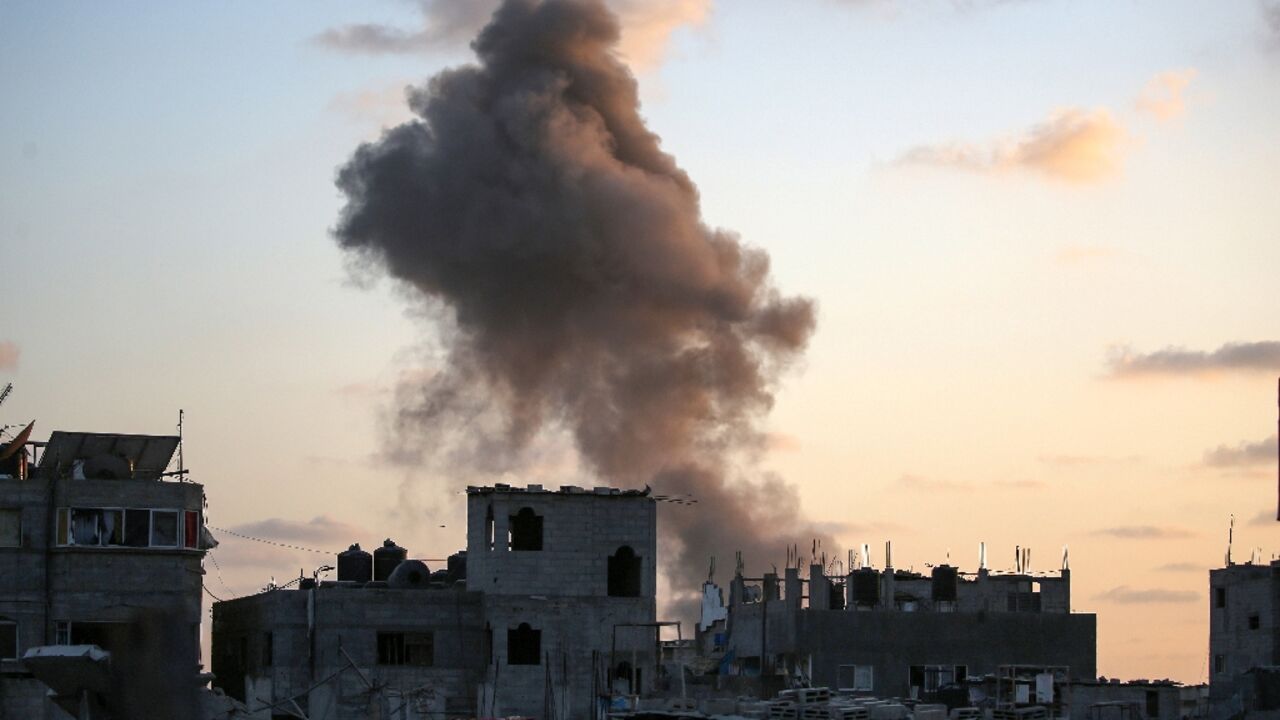Gaza discusses staying in Cairo as fighting intensifies

Gaza discusses staying in Cairo as fighting intensifies. Negotiators were preparing for a crucial weekend of ceasefire talks on Saturday as Hamas sent a delegation to Cairo but did not attend and Israel continued its bombing of targets in the Gaza Strip.
- The key issue is Israel’s insistence on maintaining troops along the Gaza-Egypt border, which Hamas opposes.
- The conflict has led to a severe humanitarian crisis with tens of thousands displaced, over 40,000 Palestinians killed

The conflict has at least once displaced nearly the entire population of Gaza and triggered a humanitarian crisis.
The United States, Egypt and Qatar have been trying for months to end the more than decade-long war between Hamas and Israel in the Gaza Strip.
The White House said Friday that progress had been made in the latest round this week, but that a possible permanent Israeli military presence along the Gaza-Egypt border has emerged as a major sticking point.
Moments of optimism throughout months of uneasy negotiations over a ceasefire and hostage rescue have always proven unfounded. A Hamas official said a delegation of Palestinian fighting groups was on its way to Cairo but would not take part in the talks. Instead, it would meet with Egyptian officials to review the status of the negotiations.
The official, speaking on condition of anonymity, told AFP that the delegation “will be briefed… but that does not mean it will participate in the negotiations.”
“Hamas has said from the beginning that it will not take part in these negotiations.”
The official said Hamas would demand that Israel withdraw all of its forces from the entire Gaza Strip, including the “border area with Egypt” known as the Philadelphia Corridor. “Closing the gap”
The talks are based on a framework outlined by US President Joe Biden on May 31 and described as an Israeli proposal.
Israeli Prime Minister Benjamin Netanyahu has since insisted on a military presence along the corridor and said Israel must stop Hamas from rebuilding its influence by smuggling weapons out of Egypt.
The White House said CIA Director William Burns was among the US officials who attended the talks in Cairo, along with Israeli intelligence and security chiefs.
“Talks are taking place in Cairo in preparation for expanded talks to start on Sunday,” an Egyptian official close to the talks said. “Washington is discussing with mediators new proposals to bridge the gap between Israel and Hamas and mechanisms to implement the plan.”
An Egyptian intelligence source said Sunday’s talks were “an important step in formulating an agreement that will be announced when the US can put pressure on Prime Minister Netanyahu.”
Fighting intensified in Gaza on Saturday. AFP correspondents and civil defense sources reported continued Israeli artillery and airstrikes on Hamas-controlled areas.
Gunfire and explosions rang out in Gaza City’s Zeitoun district as Palestinian fighters and Israeli soldiers clashed.
An overnight attack on a house west of Khan Yunis in southern Gaza killed 11 people, including one woman and four children, according to a doctor at Nasser Hospital.
The civil defense office said Israeli forces killed 35 people on Friday.
The UN said on Friday that tens of thousands of civilians were evacuating Deir el-Bara and Khan Yunis following Israeli evacuation orders ahead of military operations. Hostage protests
Israeli military attacks have killed 40,265 Palestinians in the Gaza Strip, according to the Hamas-controlled territory’s health ministry.
The UN human rights office said most of the dead were women and children.
Netanyahu faces regular protests demanding a deal to bring hostage-takers home.
Efforts to achieve a ceasefire in Gaza and avoid an escalation of the war have intensified following the killing last month of two senior Iranian-backed fighters, sparking threats of retaliation from Tehran and its Lebanese ally Hezbollah in denunciations of Israel.
As the threats grow, some Israelis are taking matters into their own hands, building bomb shelters in their homes, a solution they’ve been putting off for years. “We feel even more anxious because Hezbollah could reach us with rockets,” said Jeff Lederer, 79, a family doctor in Tel Mondu, north of Tel Aviv. “We’re also afraid of gunfire from Iran.”
Gazans say they are eager for an end to the war.
“We’re tired, but we hope that negotiations continue, that the siege will be lifted and the war will end,” Umm Muhammad Wadi, a displaced woman in Deir el-Balah, told AFP.


